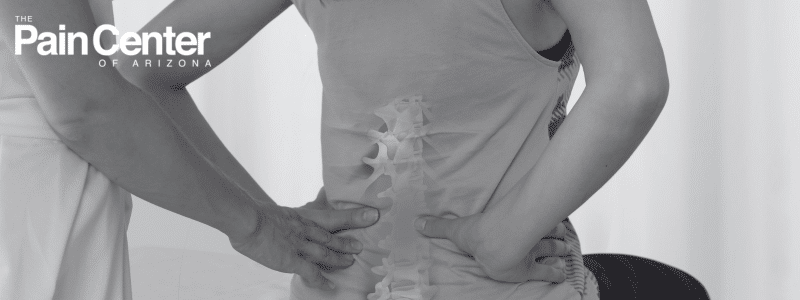
The cervical spine disc encompasses the vertebrae and intervertebral discs within the body. A disc in the spinal cord region can degenerate or be damaged due to normal wear and tear or an injury. When this occurs, chronic pain, along with restrictions to range of motion, can take place.
Opting for artificial disc replacement surgery can prove to be a successful intervention. The cervical disc replacement procedure removes the damaged disc and replaces it with an artificial disc to restore function to your spine. This implant serves the same purpose as a healthy disc, allowing for pain-free neck movement.
In this blog, we’ll look further into the following:
- What conditions does cervical disc replacement treat?
- Signs you may be a candidate for cervical disc replacement
- Non-surgical alternatives and when to consider them
- Risks and success rates of cervical disc replacement
- Preparing for cervical disc replacement surgery
What Conditions Does Cervical Disc Replacement Treat?
Cervical disc replacement is primarily used in the treatment of degenerated discs. Damage, bulging, and other issues with spinal discs can be due to several conditions, including cervical radiculopathy, disc herniation, myelopathy, and degenerative disc disease.
Signs You May Be a Candidate for Cervical Disc Replacement
Cervical disc complications affect all areas of life. The sooner you’re aware of the issue, the sooner you can take action to fix it and restore your quality of life.
Identifying the Key Medical Indications
Look for the signs of a damaged or degenerated cervical disc. These include symptoms like,
- Chronic back, neck, arm, or leg pain
- Increased back pain when bending, sitting, coughing, sneezing, or laughing
- Numbness in the neck, arms, or legs
- Chronic or frequent pins-and-needles in the arms and legs
- Muscle weakness
If you suspect you may have a damaged cervical disc, reach out to your doctor today for a proper diagnosis.
Diagnostic Procedures for Cervical Disc Issues
A diagnosis for cervical disc complications can typically be made with an MRI of the neck and an electromyography or nerve conduction velocity test. Along with an official diagnosis of the problem, your doctor will look at other symptoms contributing to a damaged disc’s impact on your life.
- Lower back or neck pain for at least six months
- No significant improvement with non-surgical solutions
- Between 18-60 years of age
- Chronic neck, arm, or leg pain
Age and Health Considerations for Cervical Disc Replacement
Cervical disc replacement is best fit for patients who are between 18 and 60 years of age, have degenerative disc disease, and have not responded to non-surgical treatments.
Likewise, certain cases can render you not eligible for the treatment due to health risks like a severe spinal deformity or other underlying medical conditions. These can impact the procedure’s success or significantly increase the likelihood of complications.
Non-Surgical Alternatives and When to Consider Them

Before you decide on spine surgery, consider less invasive options first. Some patients may respond quite well to a non-surgical option and not need further treatments.
Exploring Other Treatment Options
Physical Therapy
PT can help to reduce flare-ups of pain related to disc herniations. Depending on the severity of your herniation, it may resolve on its own, and PT can accelerate this process.
Epidural Steroid Injection
Transforaminal epidural steroid injections help relieve cervical pain due to pinched spinal nerves, which can be triggered by herniation. The relief from an epidural steroid injection can last anywhere from a few days to as long as a year.
Acupuncture
Acupuncture relieves all types of pain, including acute pain in the lower back due to slipped discs. Although acupuncture only offers short-term relief, it can reduce inflammation in the long run and aid in healing nerve damage.
Risks and Success Rates of Cervical Disc Replacement
Studies and trials have proven that cervical disc replacement can effectively treat chronic pain and hindered neck motion caused by damaged discs.
What the Research Shows
- A 2023 study by the National Institutes of Health revealed that cervical disk replacement surgery proved considerably more effective than the alternative known as anterior cervical discectomy and spinal fusion surgery. The success rates were 62.4% for cervical disc replacement compared to 22.2% for anterior cervical discectomy.
- Another study from 2020 found that the overall success rate of cervical disc replacement in the patients who underwent the surgery was 82.6%.
- A 2022 report that followed up on the rate of degeneration following cervical disc replacement 11 years post-op revealed that the operation had an overall 76% success rate.
- In a 2020 review of 139 Cervical Disc Replacement (CDR) procedures, individuals who replaced three or four discs reported a satisfaction rate of 88% seven years post-surgery.
Preparing for Cervical Disc Replacement Surgery
Before your procedure, make sure you’re taking the following steps to prepare for optimal disc replacement success. If you have any other concerns about your lifestyle’s impact on the surgery, discuss these with your doctor early on.
Steps to Take Before Deciding on Surgery
- Stop smoking or using tobacco products
- Consult with your doctor about current medications you take
- Take blood tests to evaluate your overall health and tolerance for surgery




